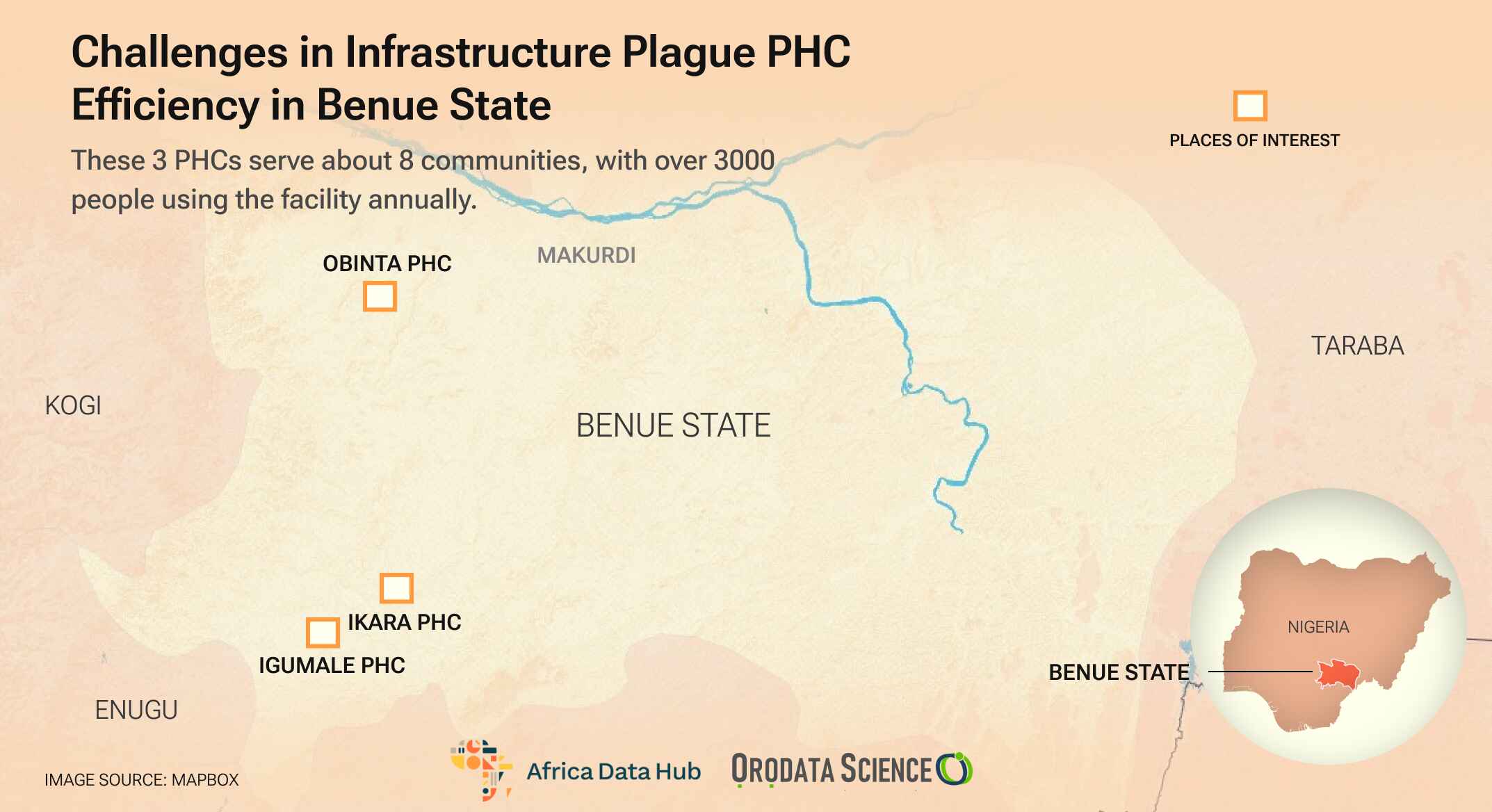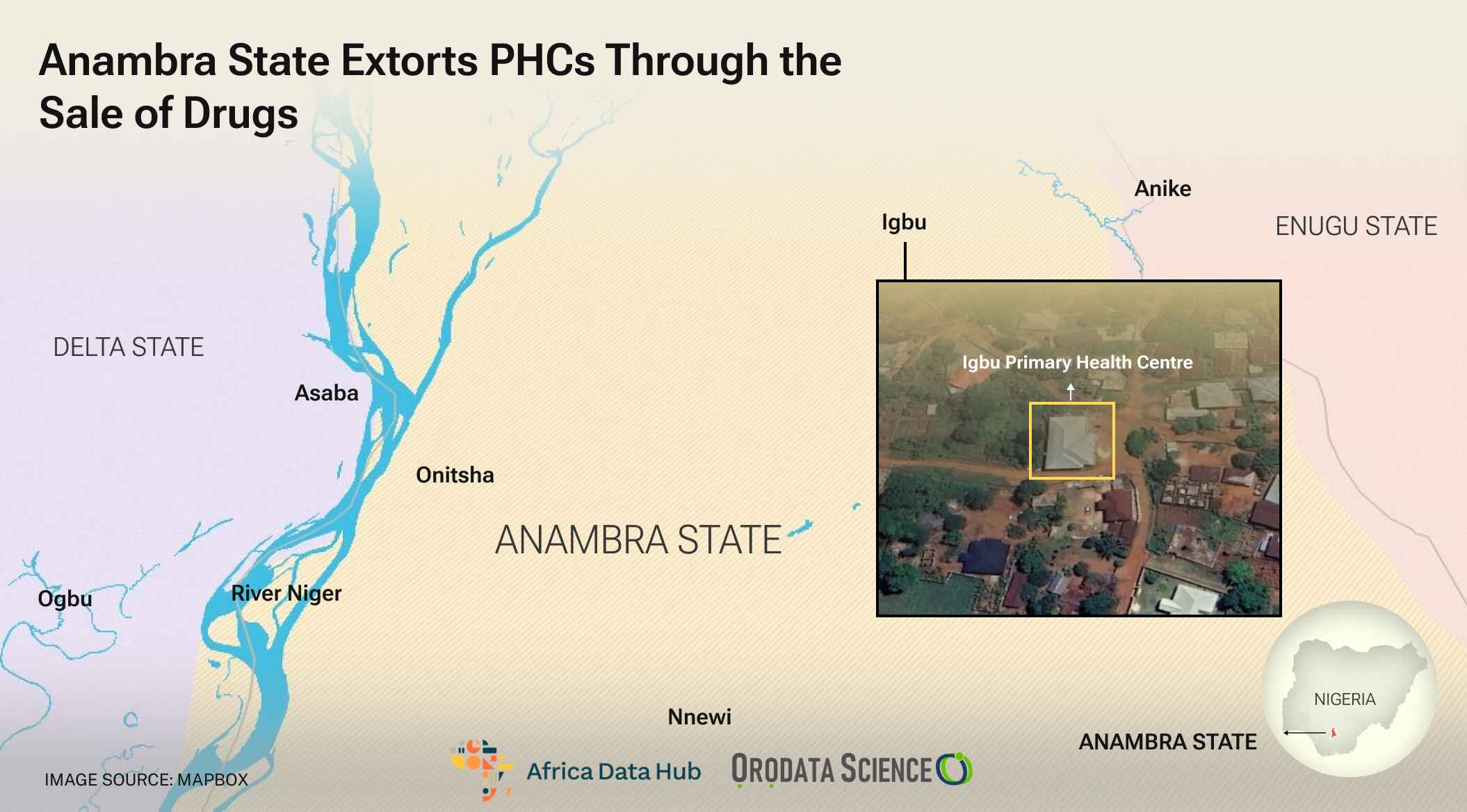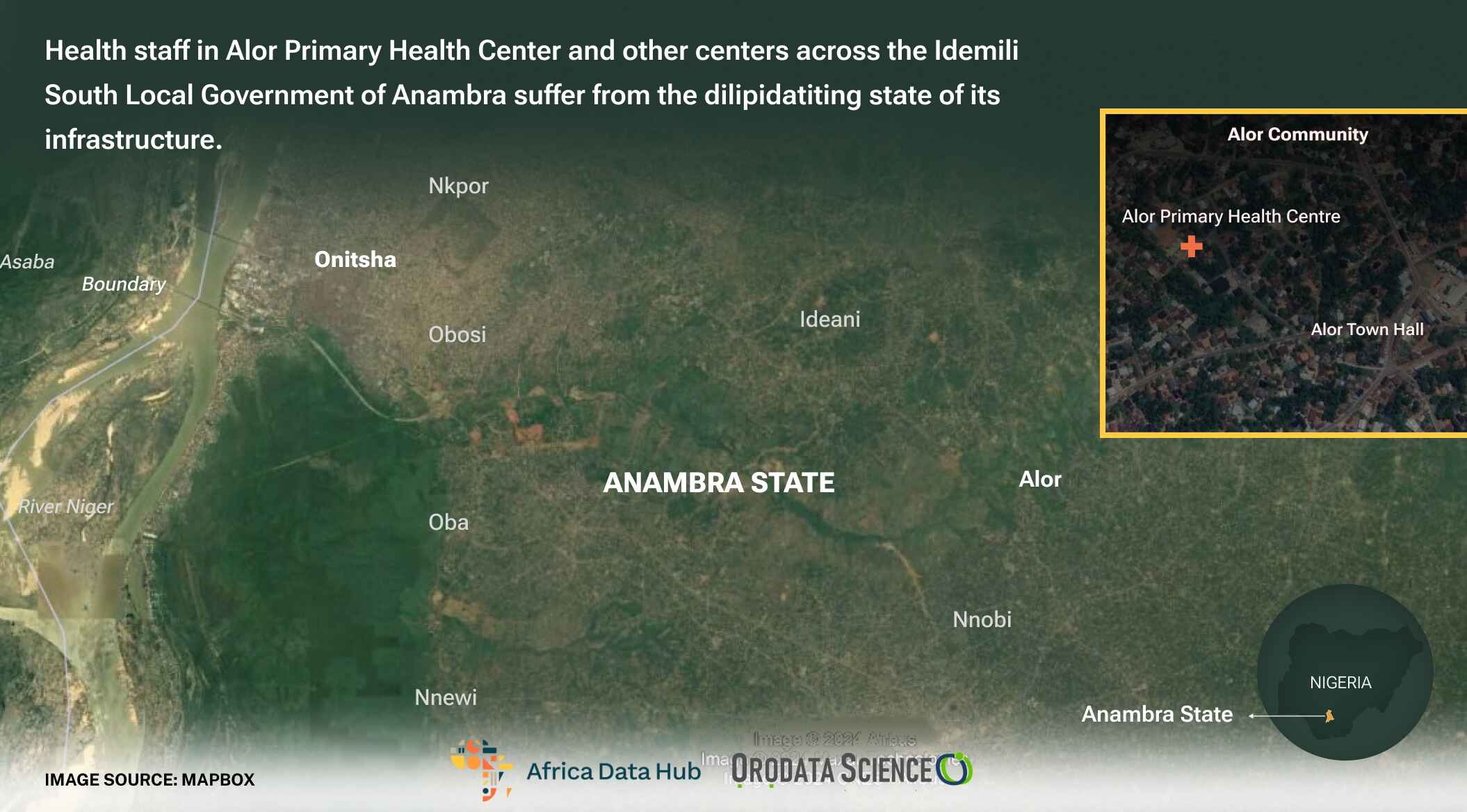Navigating Healthcare Challenges in Anambra State’s Primary Health Centers.
Hannah N.
6 min read . Jul 8, 2024
By Goodnews Nwafor
A soft tapping came the sound from the roof, then came the scurry- from removing items that the rain can damage to looking for a container to hold the water in place to prevent water from getting into the facility- the rainy season is a big nightmare for health workers in Alor primary health centre in Idemili South Local government area of Anambra state due to the leakage from the worn-out roof
Speaking about the leakage, the matron said, “Our roof are leaking, once there is rain, everywhere will start leaking, we have to start rearranging beds and other equipment in the facility to avoid rain from getting to it”.
Still on the challenges they faced, the matron complained of inadequate light supply, speaking to this reporter, she said, “Right now, we do not have light, the solar light tripped off, there is no Nepa, we have generator but we cannot fuel it due to funds”.
Another health worker mentioned how they have to deliver pregnant women with rechargeable light or torchlight. “Sometimes, pregnant mothers go into labour at night and we have to use rechargeable light to deliver them since we cannot wait for morning”.
In Oba Primary Health centre in the same local government, the matron spoke to this reporter on the risk they take in delivering pregnant mothers at night in delivery mothers at night with rechargeable light.
“We do not have generator as the one we were using before as packed up neither do we have solar, so we have to resort to using torchlight to deliver mothers if labour happens at night. Sometimes, I end up injuring myself with scissors or needles”.
Also, in Nnokwa Health post, the matron complained about the small space they are using and the need for medical equipment.
“Currently, we are staying in a hall the community people gave to us. We have only one bed, no forceps, weighing scale, BP apparatus, the one here is my own and when I leave here, I will be leaving with it. There is no water nor a water tank that can be used to collect water during the rainy season, so we have to fetch water from outside”.
LIMITED STAFFING AND NO LIVING QUARTERS
The matron in Oba primary Health centre, spoke to this reporter about the limited number of staff they have. She complained about the lack of rest they faced due to insufficient health workers working at the health facilities and living space for staff.
“We have to work in this facility, morning, afternoon and night and this leaves us with no rest time or off days. The lack of rest is seriously affecting our health. We really need living quarters as currently we are living in a room meant for the health facility, coming from my home costs me much besides we have to run the health facility morning and night”.

In Azia primary health centre of Ihiala local government area of Anambra state, the volunteer worker this reporter met, mentioned they do not always stay at the PHC 24/7 due to limited staff and no living quarters.
“They are building a staff quarters at the back but currently it has been abandoned. At night, we all go home, but the matron lives close to the health facility and if there is any emergency, the community people calls her or go over to her place”
OVERPRICED DRUGS
The primary centres this reporter visited complained about the drug supply they got from the state government in June/July is expensive. In the Nnokwa Health post, the health worker spoke about how it is difficult to sell these drugs to patients because of the cost as their patients gets it cheaper at pharmacies and chemist shops outside.
A patient who identified as Daniel talked about how getting drugs was cheaper to get from the chemist shop close to the health post. He said, “I came to treat malaria in December and I was prescribed some malaria drugs, I bought from the health post only for me to find out that the chemist shop on my street sells way less than what I got”.
In Uruagu Health post, the matron mentioned how difficult it is to sell the drugs to patients. “They brought drugs for us that are expensive and we are told the amount to pay. Most of the drugs are still here but we have no choice but to pay, sometimes we use our money to pay as we have not finished selling the drugs”.

THE NEED FOR ACTION
Primary healthcare is the most inclusive, equitable, cost effective and efficient approach to enhance people’s physical, mental and social well-being and about 80-90% of an individual’s healthcare needs throughout their life could be met at the primary healthcare level yet some of this primary health care in Anambra state do not meet the minimum requirements for PHCs in Nigeria.
The National primary healthcare development agency outlined the minimum standards for primary healthcare in Nigeria. Many of the primary health centres / health posts, this reporter visited, fall short of the minimum standards. The health centre facility in Oba, Azia, Nnobi, Nnaku do not have staff accomodation and sufficient rooms neither do most of this health facilities have alternative power supply.
Having walls and roof in good condition with functional doors and netted windows is a far cry for Uruagu Health post in Idemili South and Azia primary health centre in Ihiala.
The matron of Oba primary centre mentioned the inadequate funds they receive every quarter. “We are told to send in what we need every quarter in a year and we are given some money but this is not enough to fully support the facility as there are a lot of things to be fixed”.
Calling on the Anambra state government to come to their aid for alternative source of ligh and water, the matron in Alor primary health centre mentioned they do receive funds from the BHCPF through the State government but with what is needed to be done in the facility, thos funds are not enough.
Anambra State Ministry of Health was contacted in an attempt to obtain a statement, but contact with the ministry was unsuccessful.
This story was produced for the Frontline Investigative Program and supported by the Africa Data Hub and Orodata Science
Related Posts

Overcoming Infrastructural Challenges: Enhancing Primary Health Care in Benue State
Jul 8, 2024
6 min read

State Government Accused of Extorting PHCs: Allegations and Impact Unveiled.
Jul 8, 2024
5 min read






